
Prostate cancer treatment means using medical methods to stop or control cancer in the prostate gland. The prostate is a small gland found only in men. Many Bangladeshi patients call it prostate therapy, gland cancer treatment, prostate operation, or simply treatment for men’s cancer.
What is prostate? The prostate is a walnut-sized gland beneath the bladder, crucial for producing fluid that nourishes and transports sperm. As men age, the prostate can enlarge or develop conditions like prostate cancer.
Why does prostate cancer occur? It is often asked by people. It usually develops when genetic mutations cause cells in the prostate to grow uncontrollably, often influenced by age, family history, hormones, or lifestyle factors.
Many people believe that prostate cancer always spreads quickly, but this is not true. In most cases, it grows slowly and may not require urgent treatment. Some also think that only older men can get prostate cancer. While it is more common in men over 50, younger men are sometimes affected too.
Another common belief is that surgery is the only way to treat this cancer. In reality, many patients receive other forms of treatment, like hormone therapy or radiation. Doctors may choose different treatment options depending on the stage of cancer and the patient’s health based on their condition.
Prostate cancer does not always lead to death. With early diagnosis and proper care, many patients recover fully and go on to live healthy lives.
People need prostate cancer treatment when cancer cells grow inside the prostate gland. If untreated, this cancer can spread to other parts of the body, like the bones or bladder. Treatment helps stop the cancer from growing, reduces pain, and improves the patient’s chances of living a longer, healthier life.
For conditions like enlarged prostate, treatment for enlarged prostate is often needed to relieve symptoms such as frequent urination or difficulty urinating, improving quality of life. Medications or minimally invasive procedures can help manage these symptoms effectively.
The common causes of prostate cancer are:
Prostate cancer often grows slowly. In the early stages, there may be no signs at all. As the cancer grows, it can cause clear symptoms. Knowing these signs helps people visit a doctor early.
Common Symptoms:
If these symptoms last for more than a few weeks, it is important to see a doctor. Early detection increases the chance of successful treatment.
Treatment usually begins when symptoms start to affect daily life or test results show that the cancer is growing. A doctor may suggest:
Here are some practical prevention tips to help reduce your risk of developing prostate cancer and the need for a remedy for prostate enlargement:
If a tumour is found and confirmed as cancer, treatment is usually started to stop it from growing or spreading. The sooner the cancer is found, the better the results after treatment. In some cases, even without symptoms, treatment is advised if the cancer is fast-growing or likely to spread. On the other hand, if the tumour is slow-growing and does not cause problems, doctors may suggest regular monitoring instead of immediate treatment.
Early treatment gives the best results, especially if the cancer has not spread to other parts of the body. If you or your loved ones have any of these signs, Bangla Health Connect connects you with cancer experts at the leading hospitals around the world.
.png)
Through Bangla Health Connect, Bangladeshi patients can access world-class hospitals in India, Thailand, and other countries that are recognised for their advanced expertise in prostate cancer care. Many families choose recognised overseas medical centres for their proven success rates, innovative treatments, and holistic patient support.
Here’s why Bangladeshi patients choose prostate cancer treatment with Bangla Health Connect’s network of hospitals worldwide:
Bangla Health Connect gives Bangladeshi patients a trusted route to expert doctors, affordable treatment, and reliable global care for prostate cancer.
Bangla Health Connect connects patients with leading hospitals across the globe. These centres are renowned for their expertise in managing prostate cancer, offering advanced surgical and non-surgical treatments, and providing comprehensive support for international patients.

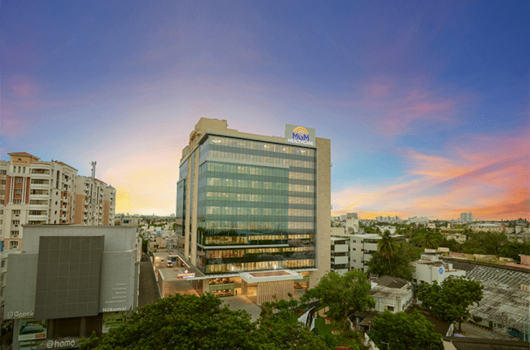
.jpg)

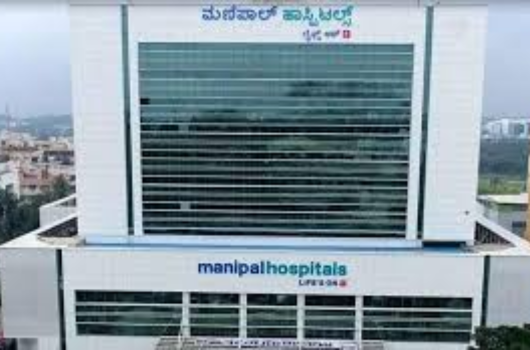
.png)
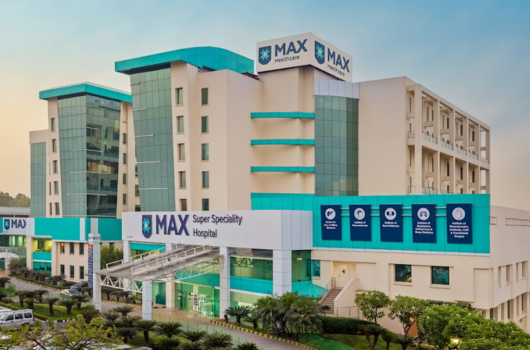
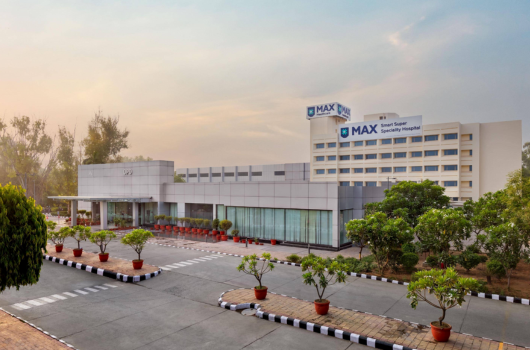
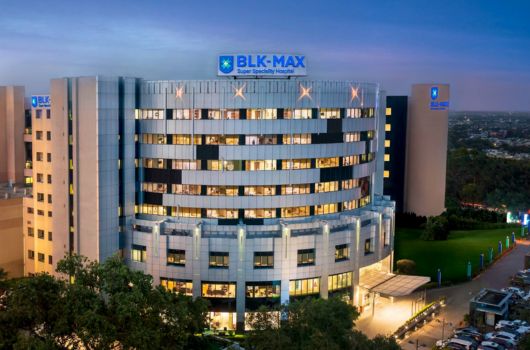




These hospitals follow global cancer treatment guidelines and provide full support for Bangladeshi patients through Bangla Health Connect.
The prostate cancer surgery cost ranges from $2,800 to $6,000 in India and from $3,500 to $8,000 in Thailand. The final cost may vary based on multiple factors such as the treatment method, hospital location, and the stage of cancer. Before viewing the detailed table of treatment-wise costs, it's helpful to understand what influences these expenses most.
Note: India is well known for offering cost-effective advanced cancer treatment. Hospitals combine affordability with strong clinical outcomes, supported by skilled oncologists and the widespread availability of generic medicines.
Note: Thailand’s hospitals are often promoted as premium destinations for international patients. Their higher costs reflect the use of advanced imported medicines, luxury infrastructure, and all-inclusive patient care packages.
The costs listed are approximate and may vary based on hospital, location, and patient needs. Consult the healthcare provider for accurate and updated information.
The currency conversion rates in the table above are based on data from October 2025.
For more help on cost estimates and personalised guidance, contact Bangla Health Connect.
Success in prostate cancer treatment means that the cancer is either fully removed, controlled, or no longer growing.
Prostate cancer survival rates are very high when detected early. According to American Cancer Society, men with cancer confined to the prostate or nearby tissues have a 5-year relative survival rate of over 99%, while those with cancer that has spread to distant organs have a rate of 37%. Overall, across all stages, about 97% of men survive for five years or more after diagnosis.
Top cancer hospitals emphasise early detection, tailored treatment strategies, and comprehensive multidisciplinary care for prostate cancer. Their approach includes:
By combining cutting-edge technology with expert specialists and patient-centred care, these hospitals achieve better survival rates and quality of life for men with prostate cancer.

Dr. Srinivas Chilukuri, Professor and Senior Consultant in the Department of Radiation Oncology at Apollo Proton Cancer Centre, Chennai, highlights the advancements in prostate cancer treatment using proton therapy. He explains that proton therapy offers excellent survival rates and is especially beneficial for carefully selected patients. It is commonly used for prostate cancer, but not everyone is a candidate. Younger patients who wish to avoid sexual side effects or those with high-risk prostate cancer are ideal choices. Patient selection is based on overall health, ability to travel, and readiness for regular follow-ups after treatment.
Bangla Health Connect helps Bangladeshi patients get safe and fast prostate cancer treatment worldwide. The team works closely with the leading hospitals to make every step simple and stress-free.
Choosing hospitals through Bangla Health Connect gives you access to world-class care with complete guidance and no stress. Start your journey with confidence - we’re here to help you.
Note: Bangla Health Connect does not offer medical advice. We help patients connect with the right experts and support services.

Mr. Ali from Bangladesh was suffering from prostate cancer, but was initially misdiagnosed with bladder cancer in Bangladesh. After visiting Apollo Hospitals, Hyderabad, he received the correct diagnosis and treatment from Dr. Sayan Paul, Radiation Oncologist. The timely intervention helped avoid further complications. With proper care and advanced treatment, Mr. Ali began recovering steadily.
✅ Share Your Reports - Bangla Health Connect connects you with trusted hospitals worldwide.
✅ Get treatment plans from leading Hospitals worldwide
✅ Choose the one that fits you
✅ Let us handle the rest
Yes. All Bangladeshi patients need a valid medical visa to get treatment abroad. Bangla Health Connect helps you get the invitation letter from the hospital and guides you through the visa process.
Yes. You can bring a close family member under an attendant visa. Most patients travel with a spouse, parent, or sibling for support. Bangla Health Connect helps with visa and travel arrangements for both the patient and the attendant.
The stay depends on the type of treatment. For surgery like a radical prostatectomy, patients usually need to stay about 2 to 3 weeks. This includes pre-surgery tests, the operation, hospital stay (5 to 7 days), and follow-up recovery checks. If you're coming for radiation or hormone therapy, the stay may be shorter or spread out over multiple visits, depending on your treatment plan. The doctor may guide you regarding this.
Yes. Bangla Health Connect provides full support from doctor booking to return travel and guides you through the process.
You need a passport, doctor reports or prescriptions, a medical visa, and an invitation letter (Bangla Health Connect arranges this for you).
Yes. Bangla Health Connect helps you pick the best hospital based on your condition, the specialist’s experience, and your city preference.
Yes. Travelling abroad for treatment is safe. Trusted hospitals in India, Thailand, and other countries maintain strict safety and hygiene standards. Through Bangla Health Connect, patients also receive airport pickups, secure transport, and full guidance from arrival to treatment, ensuring a smooth and worry-free journey.

